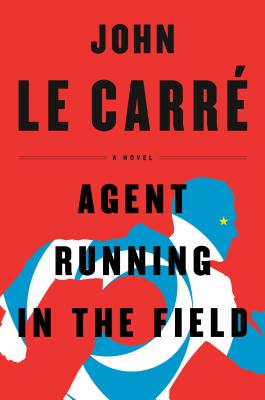What do you think?
Rate this book


Nat is not only a spy, he is a passionate badminton player. His regular Monday evening opponent is half his age: the introspective and solitary Ed. Ed hates Brexit, hates Trump and hates his job at some soulless media agency. And it is Ed, of all unlikely people, who will take Prue, Florence and Nat himself down the path of political anger that will ensnare them all.
282 pages, Hardcover
First published October 22, 2019
“One reason why the political intelligence of our time is so incredulous and uncomprehending in the presence of the right-wing mind is that it does not reckon fully with the essentially theological concern that underlies right-wing views of the world. Characteristically, the political intelligence, if it is to operate at all as a kind of civic force rather than as a mere set of maneuvers to advance this or that special interest, must have its own way of handling the facts of life and of forming strategies. It accepts conflict as a central and enduring reality and understands human society as a form of equipoise based upon the continuing process of compromise. It shuns ultimate showdowns and looks upon the ideal of total partisan victory as unattainable, as merely another variety of threat to the kind of balance with which it is familiar. It is sensitive to nuances and sees things in degrees. It is essentially relativist and skeptical, but at the same time circumspect and humane.
The fundamentalist mind will have nothing to do with all this; it is essentially Manichean; it looks upon the world as an arena for conflict between absolute good and absolute evil, and accordingly it scorns compromises (who would compromise with Satan?) and can tolerate no ambiguities. It cannot find serious importance in what it believes to be trifling degrees of difference: liberals support measures that are for all practical purposes socialistic, and socialism is nothing more than a variant of Communism which, as everyone knows, is atheism.‚Ä�







Sometimes in life you get caught for sins you haven’t committed.After spending more than half his life abroad in service of his Queen, Nat returns home to the UK. At age 47, Nat is nearing his expiration date as an agent runner for Britain's Secret Intelligence Service, aka the Office.
I adapt to circumstances and have no insuperable moral scruples. I can be irascible and am not by any means immune to female charms.The Office contains a deep bureaucracy in which the Peter Principle periodically appears. The duplicitous Dom has recently become a division head and requests Nat, who is fluent in Russian, to head the Haven, a substation for has-been and low-ranking Russian spies.
I can be headstrong and do not respond naturally to discipline. ...in need, I can be relied upon to exhibit the required callousness...
For unbelievers, badminton is a namby-pamby version of squash for overweight men afraid of heart attacks. For true believers there is no other sport. ... To fellow athletes, we're a bit weird, a bit friendless.His reputation has attracted the competitive attention of Ed, another badminton enthusiast -
this six-foot something, gawky, bespectacled young man with a sense of solitude about him and an embarrassed half-smile.
I was in the presence of something rare in the life I had led so far, and particularly in such a young man: namely true conviction, driven not by motives of gain or envy or revenge or self-aggrandizement, but the real thing take it or leave it.
"And ever since we kicked out [Russia's] legal spies in bulk" - meaning spies with diplomatic cover, so my sort - "they've been flooding our shores with illegals," she goes on indignantly, "who I think you'll agree are the most troublesome of the species and the most difficult to smell out."
"If a traitor doesn’t surprise the shit out of us, he’s no bloody good at his job."

